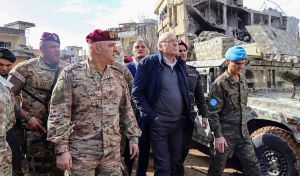By Kouthar Sambo
Amid a time of great geopolitical fractures in the Middle East, the Russian/Ukraine war, and the United States’ (US) role in the political landscape, an international relations expert and a Mail and Guardian Columnist Donovan Williams provided a comprehensive, yet punchy breakdown of the most pronounced geo-political developments that unfolded throughout the year.
The Government of National Unity (GNU) – how the dynamic impacts SA politics
“We have been forced not to do what the country requires, but choose between parties who want power. However career politics has prevailed and we as the people are led, by what we call, sheep that claim rhetoric, radical transformation – all of it used to further career politics,” Williams explained across the VOC airwaves during an interview on the PM Drive show.
“The liberal parties such as the Democratic Alliance (DA), do what’s necessary – they have a master and understand their master in terms of serving the West,” added Williams.
Geopolitical landscape in the Middle East – Lebanon
As tension continues to mount in the Middle East, Williams stressed the ceasefire in Lebanon is only implemented to protect the Israeli occupation forces – not Lebanese civilians.
“As weak as the Lebanese military and state is, as Hezbollah is much stronger, the agreed so-called ceasefire only benefits Israel because it removed Hezbollah, which in turn fought for the protection of Lebanese civilians.”
“Most media reports highlighted how Hezbollah was annihilating the Israeli occupation forces and Israel was losing its balance. The next thing we know, there is a ceasefire agreement that means Hezbollah will break the agreement if it rebuilds,” expanded Williams.
Russian/Ukrainian conflict – the US dynamic
Furthermore, Williams provided an overview of the geopolitical landscape in Russia and Ukraine vs the dynamic with the United States (US) President-elect Donald Trump.
“I think this is often misinterpreted – Trump doesn’t have a problem with the North Atlantic Treaty Organization (NATO), he wants NATO. He has a problem that the Europeans don’t pay enough for NATO. He needs the Germans to invest more into NATO and order weapons and other manufacturing resources, such as the automobile industry, from the US for NATO,” explained Williams.
Photo: QudsNen/X [Lebanese Prime Minister Najib Mikati]









